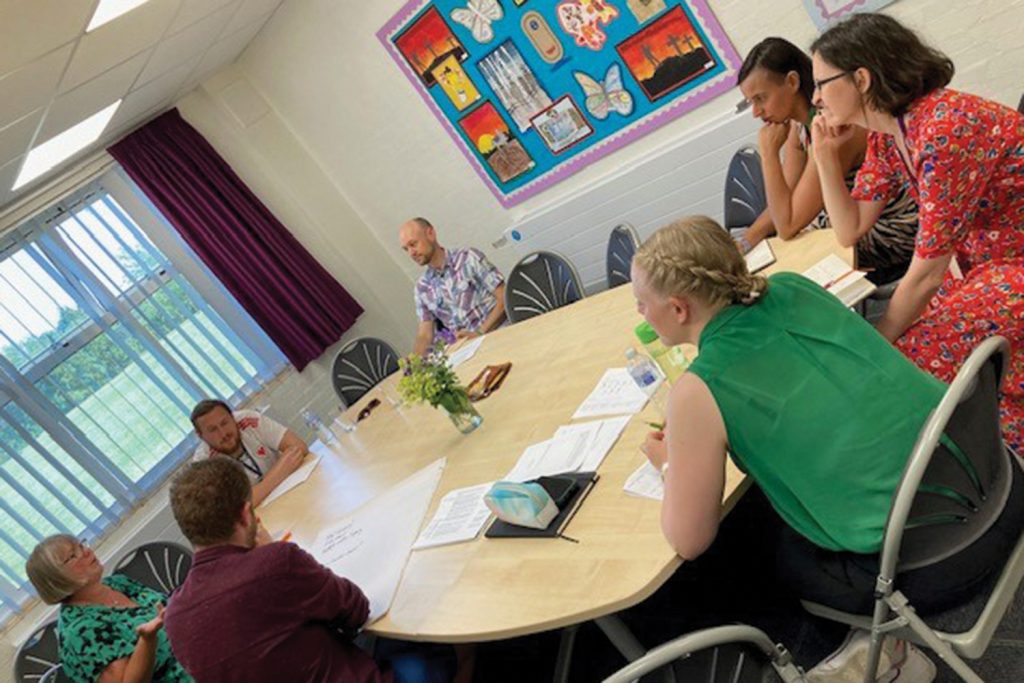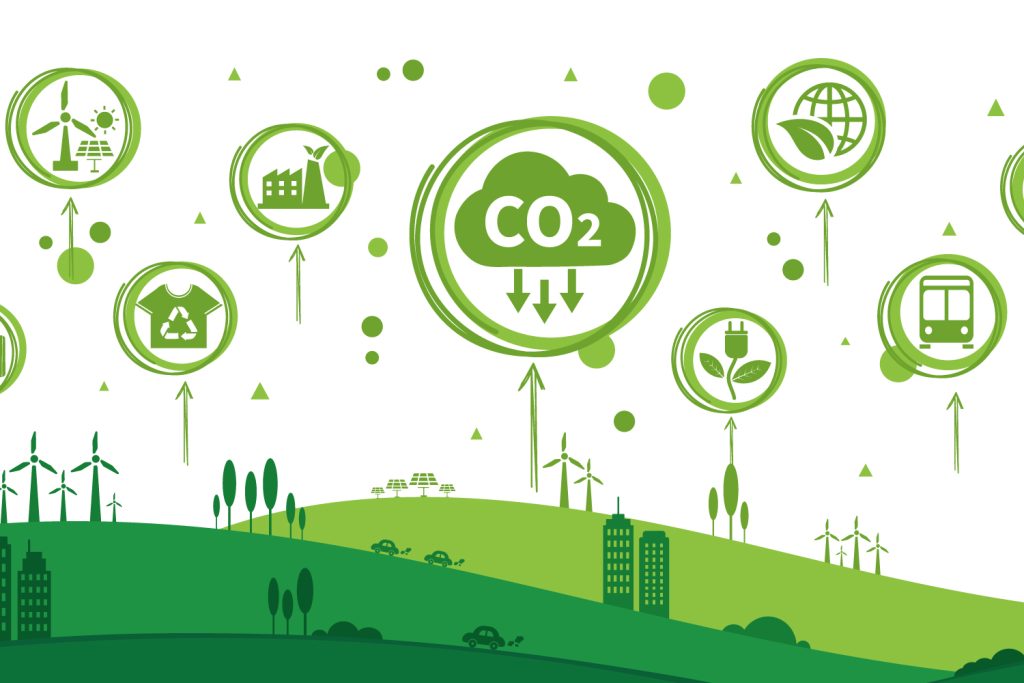Tools and training for councils tackling climate change
Alongside the majority of councils, the LGA has declared a climate emergency, and we offer a wide range of resources to help councils address environmental sustainability.
In partnership with, and funded through, the Crown Commercial Service, the LGA has launched a sustainability programme as part of its sector support offer.
The programme will provide tools and opportunities to build councils’ capability and capacity in sustainability and the environment.
The LGA provides data-driven and consistent approaches for the sector to prioritise the actions that will drive their sustainability, efficiency and improvement goals.
The three key pillars of the programme are:
- Building capability – learning, skills and guidance to help councils deliver on their climate and adaptation targets, through masterclasses (see right) and roundtables that will highlight key sustainability themes and upskill participants.
- Tools – our free greenhouse gas accounting tool provides a straightforward and consistent approach for councils to calculate their own carbon base, and our free waste emissions calculator assists with carbon ‘foot printing’.
- Networks – an online sustainability hub, a monthly sustainability bulletin, and an officer ‘communities of practice’ network.
To find out more, please see below , visit the Sustainability Hub, or email [email protected] with any questions or for additional information
Climate action teacher champions

Schools in Luton have developed climate action plans for the first time, with the support of a new scheme from Luton Council.
The Climate Action Teacher Champion (CATCh) programme trains nominated teachers to identify opportunities for environmental action in their schools.
Teachers share their experiences and learn from each other, and then they write up an action plan with one-to-one mentoring from environmental experts.
Schools are well placed to help facilitate climate action within school settings, but also to influence behaviour in the wider community.
The challenge comes in helping schools overcome barriers to action, where teachers may feel they lack support or need tools to help inspire and encourage staff and students.
Schools also have the challenge of adapting to an ever ‘greener’ curriculum, with new opportunities to engage students on topics such as climate change and sustainability.
The scheme is funded by the UK Shared Prosperity Fund and delivered by Luton Council’s Climate Change Team, with support from the University College London (UCL) Climate Action Unit, Youth Network Community Interest Company, and community and environment charity Groundwork East.
The programme’s initial development by UCL’s Climate Action Unit allows for emphasis to be placed on the psychology of the challenges that schools may face in undertaking an action plan.
Benefits include helping schools and students take action to lower their carbon impacts, at school and at home.
Schools where Luton Council has direct control or influence produced 8,294 tonnes of CO2 according to a 2020 report.
Action planning can start the process of identifying areas in which schools can take action, while also inspiring positive action – for example, helping reduce reliance on car journeys and switching to active travel means for getting to school.
The case studies on these pages are just two of the many available via the LGA’s Sustainability Hub.
Making rain happy in Essex
On 31 January 1953, a tidal surge hit Canvey Island in Essex, and 59 people tragically lost their lives.
While the island is now well protected by a sea wall, residents have suffered surface-water flooding in recent years. The most severe event occurred in 2014, when flooding to 1,000 properties was reported.
In 2019, a multi-agency partnership involving all flood management authorities began to consider a street-level retrofit of drainage systems using green infrastructure on the island’s Park Avenue, an area prone to surface flooding.
The aim of the project was to reduce flood risk by using the street’s grass verges and public open space to absorb surface water, as well as provide other benefits to the community, such as livening up the street with tree planting and an attractive planting scheme.
The other option would have been to upgrade the traditional drainage in the road, but that would have added to the demand on an already struggling drainage system.
The ‘Make Rain Happy’ scheme saw the installation of rain gardens, swale (a shallow grassy drainage channel for water to run through), trees, more than 1,300 plants, a footbridge across the swale so residents can still access the green space during wet periods (pictured), and a permeable plastic grid to stabilise the ground and accommodate parking, while still allowing water to infiltrate and grass to grow (‘X-grid parking’).
The team designed and erected a lectern board by the footbridge to explain the scheme, its aims, and its features to residents and visitors.
The project was successful at reducing surface-water flooding, looked attractive, and was popular among residents – in part because of the car parking improvements.
Essex County Council consequently identified three new sites for rain gardens and is looking for additional suitable locations where it can replicate the success of Park Avenue’s ‘Make rain happy’ scheme.
Masterclasses for councillors
The LGA runs a series of sustainability masterclasses for councillors and officers in England that aim to help you make informed decisions about carbon reduction and provide ‘carbon literacy’ accreditation.
The masterclasses will explore your crucial local leadership role in responding to the climate emergency. They will also provide skills and knowledge to enable you to embed good practice concerning climate change, carbon literacy, adaptation, green finance, and environmental sustainability within your council.
During the course, you’ll commit to two carbon-reducing actions. These actions will be evaluated by the Carbon Literacy Project for you to be certified as ‘carbon literate’, enabling you to train others in your area of work.
The masterclasses are fully subsidised and are delivered virtually across two consecutive days.
Applications are open for the next course, running on the 13 and 14 March for councillors.
To find out more and to book your place, please visit www.local.gov.uk/sustainability-masterclasses.
Adaptation event

Adapting to current and predicted changes to our climate, at national and local level, is vital across society and the economy.
Appropriate governance and decision-making are essential to ensure that leadership teams and elected members are aware of, and understand, sustainability and climate risk for local areas, and that they appreciate the importance of resilience measures to support adaptation to extreme weather events and incremental changes to our environment.
The LGA will be discussing these issues at a virtual adaptation event on 14 March, providing guidance on developing capability and capacity to implement local adaptation plans, strategies and projects.
If you missed our two virtual events and roundtables run so far, on decarbonising transport, COP28, and community engagement, we have captured the key discussion points from the sessions, along with the slides from our guest speakers.
These can be found at www.local.gov.uk/sustainability-roundtables-and-virtual-events, where you can also book your place at the adaptation event on 14 March. This event is open to both councillors and officers.